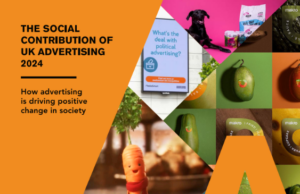Although Google recently announced a stay-of-execution for third-party cookies on its Chrome browser until the end of 2022, the UK publishing community is busy developing ad products for its customers that don’t rely on intrusive tracking and targeting methods.
While the loss of third-party cookies represents a significant challenge for publishers, Matthew Goldhill, Founder and CEO of Picnic, argues that the new relationships created between publishers, readers and advertisers have the potential to deliver better results for everyone:
“We don’t think the lack of audience targeting scale will limit the success or overall scale of campaigns. Smart buyers will need to combine multiple different buying methods such as 1-to-1 audiences, cohorts and contextual, and this combination will deliver the same performance at perhaps an even greater scale.”
Goldhill points to how contextual advertising has been pushed back into the limelight, with some industry players expanding the boundaries of contextual beyond keyword targeting to deliver new innovative solutions, from AI (Mantis) to Enhanced Contextual (MiQ).
He says: “We’re going to see huge innovations in how contextual campaigns drive results. At Picnic we’re building a product that uses the social graph (i.e. how content is shared on social) to power a unique social context solution. Having a first-party data relationship is vital to this, and we work with our publisher partners to deliver ads based on how they understand their own audiences.
“We’re working with publishers to receive first-party audiences via PMPs. The most exciting development will be to receive this data in a privacy-first way on open exchanges (or at least buying methodologies that aren’t as custom as PMPs). We’re looking forward to concepts like standardised cohort taxonomies being brought in to open buying standards.”
Babs Kehinde, Senior Director, Publisher Development, EMEA of PubMatic agrees that consumer privacy and control are critical components of a healthy and sustainable open internet – and that first-party data will be crucial to publishers’ future strategies: “Developing first-party connections between publisher, advertiser and consumer has been a key part of PubMatic’s approach to post-cookie addressability. This presents a significant opportunity for the open internet to coalesce around user experience and consumer choice.
“Brand and agency-side buyers have determined that first-party data strategies are a key to long-term addressability success. That’s why PubMatic is expanding the capabilities of Audience Encore, an audience buying platform for buyers that enables publishers and data owners to identify future-proofed audience segments based on first-party data and alternative IDs.”
Up close and personal
Recently published research from LiveRamp revealed that brands are looking for more direct contact with target publishers, with 85% of respondents looking for a closer relationship.
When asked what publishers could do to help convince them to run more campaigns, a compelling value exchange (53%), new consumer-centric or engagement-based metrics (48%), working with trusted identity partners (46%) and increasing their percentage of first-party authenticated data (43%), were cited as of high importance.
The survey of brand marketers also revealed that 63.4% of respondents would be willing to pay between 5% and 10% more for authenticated data, while a further 20.7% would be prepared to pay 10 to 15% more. But how can publishers bolster their first-party data and gain the consent needed from their customer base?
Babs Kehinde of Pubmatic says: “Consumers tend to give their consent on three conditions: if it’s a site they use regularly; if it’s a well-known brand; or if the site has been recommended by a friend or family member. But there’s a dangerous juncture at which things can go awry. Once a consumer has agreed to relinquish personal information, if at any point they feel that their data has been misused or their privacy violated, quite simply you’ve lost them. They will withhold all data, which is a position no publisher wants to be in.”
A separate piece of research, commissioned by A Million Ads and published earlier this year, revealed that 19.5% of consumers are ‘very willing’ and 41.2% are ‘somewhat willing’ for advertisers to use their data to personalise ads and offers – if it keeps content free and their data anonymous.
Publishers power up
Picnic’s Matthew Goldhill says: “Consumers are more aware of the value exchange between brands and websites collecting their data now. And it seems that people are more comfortable sharing their data when it is given as a choice – along with increased understanding of what they are sharing.
“We passionately believe that personalised advertising can create a better content experience. If you accept that ads are part of the value exchange, then you’re way happier seeing an advert that’s relevant to you than something that clearly isn’t. However, users require transparent insights into why they’re seeing that ad (e.g. how they were targeted) and how to stop that kind of brand targeting them again.”
Several leading UK publishers are collaborating to provide the scale required to compete with the digital giants Google and Facebook. The Ozone Project, for example, has united inventory from The Guardian, News UK, The Telegraph, Reach, TimeOut and Stylist to offer a reach of about 45 million UK adults.
Another exciting development is the recent announcement that Google is experimenting with functionality to provide publishers with the option to share encrypted signals directly with Authorized Buyers or Open Bidders with whom they already have a direct relationship: “We believe that publishers that have built first-party relationships with their audiences should be able to provide personalized ad experiences to those customers,” said the blog.
Google’s backing for ‘publisher-provided identifiers’ (PPID) puts publishers back in the driving seat of their own destiny and should make the development of their first-party data strategies a core priority over the next 18 months.










